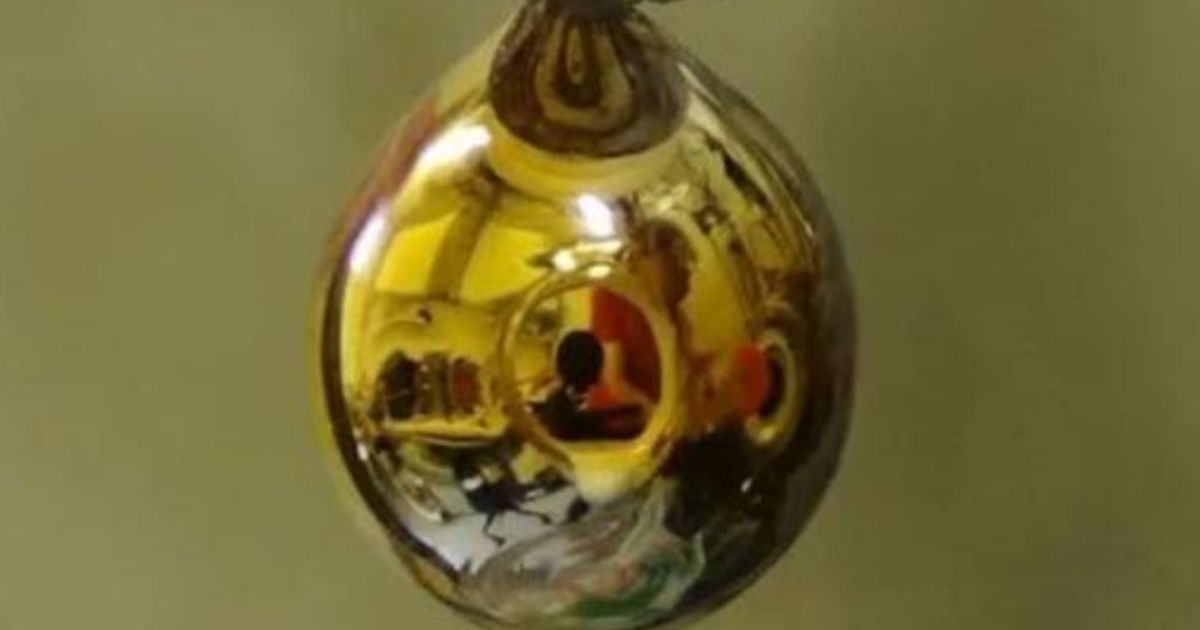Since the discovery of gold and precious metals, people have been driven by the need to obtain more of them, enchanted by the wealth they represent.
But some people in particular are obsessed with the idea that something humble could be turned into something incredibly valuable — namely, something like lead into gold.
Alchemy is a mysterious, ancient practice that captured the imaginations of many, and to some degree, it still holds that sway over us in modern times — which is why one recent discovery has many laypeople entranced.
In “Spectroscopic evidence for a gold-coloured metallic water solution,” a study published in the journal Nature on July 28, a group of scientists explains that they were able to momentarily take purified water and change it into a shiny, golden metal through a series of special preparations and conditions.
While water that contains salt conducts electricity, purified water that has been distilled acts as an insulator and must be transformed through pressure in order to conduct.
[firefly_embed]
[/firefly_embed]
“It consists of H2O molecules that are loosely linked to one another via hydrogen bonds,” reads the EurekAlert! webpage on the new study.
“The valence electrons remain bound and are not mobile. To create a conduction band with freely moving electrons, water would have to be pressurised to such an extent that the orbitals of the outer electrons overlap.
“However, a calculation shows that this pressure is only present in the core of large planets such as Jupiter.”
It would be difficult to get the right conditions to force this shift even in modern-day laboratories, but the team got around that requirement by using alkali metals and borrowing their electrons to make the water metallic.
Mixing alkali metals and water can cause explosions, but the scientists in this experiment had studied those reactions and thought they could find a way around them.
“In the experiment, they placed a syringe filled with sodium and potassium in a vacuum chamber, squeezed out small droplets of the metals, which are liquid at room-temperature, and then exposed said metal droplets to a tiny amount of water vapor,” LiveScience shared.
“The water formed a 0.000003 inch (0.1 micrometer) film over the surface of the metal droplets, and immediately, electrons from the metals began rushing into the water.”
What the viewer sees in the videos that have been shared is a tiny bubble forming and turning golden. Spectroscopy showed that the “golden” water was actually metallic for a few seconds.
The transformation is fleeting, and it isn’t actual gold, but the discovery has awed scientists who know just how interesting a finding this is, as well as people who just enjoy seeing a clear drop turn into that longed-after golden color before their eyes.
[firefly_embed]
[/firefly_embed]
“It was amazing, like (when) you discover a new element,” study co-author Pavel Jungwirth told Nature, adding that it was a highlight of his career.
“Our study not only shows that metallic water can indeed be produced on Earth, but also characterizes the spectroscopic properties associated with its beautiful golden metallic luster,” Robert Seidel, study author and head of the Young Investigator Group at Humboldt University of Berlin, told LiveScience.
“You can see the phase transition to metallic water with the naked eye.”
This article appeared originally on The Western Journal.

























 Continue with Google
Continue with Google